E-commerce operation, as the name suggests, is to operate e-commerce, make the store traffic, thereby increasing sales. However, e-commerce operation is a big concept, and e-commerce operation is not something you can do well by simply understanding knowledge. One very important point is operational thinking. Only by controlling the direction well can you embark on the correct operation path. So let’s take a look at what types of e-commerce operation thinking we need to understand!
1. Leveraged thinking
E-commerce operations are actually composed of many trivial small things. In fact, it should be said more accurately: operations are a layered job. Many times, you need to prepare to do some trivial small things first, and then use this as a leverage point to leverage more major events.
Take a chestnut:
The author first writes a good article and shares more knowledge about e-commerce operations to make the users of book purchases profit, and then uses this as a leverage point to leverage all friends' willingness to help the author's personal brand dissemination in the future.
If you want to do a new treasure activity in the store, you should first rely on the direct promotion or the old member CRM to attract traffic, and do the basic sales and evaluation in the early stage, and use this as a leverage point to leverage more users' purchasing intentions.
Therefore, an excellent e-commerce operation talent should master (flexibly apply) N "leverage points" based on results.
The so-called leverage refers to external resources, methods, techniques and operators' internal ammunition database.
Adequate operating ammunition database = learning ability + insight into Taobao rules + high sensitivity to the store + understanding of integration and leveraging + operational practical ability.
①Learning ability: refers to the comprehensive embodiment of the motivation, perseverance and ability of a person or an enterprise or an organization to learn. It is the ability to transform knowledge resources into knowledge capital and the core ability of all industries. An excellent operation talent is always learning and always fresh with the times.
② Insights into Taobao rules: You must learn to be highly sensitive to Taobao rules. There is a login box on the right of Taobao homepage, and an announcement board below carousels every day. At the same time, Taobao rules are adjusted from time to time. We can understand Taobao's current purpose and policy through announcements or rules to avoid loss of store risks.
③High sensitivity to the store: Every morning, the store will read the website message to understand the real-time traffic of the store today, track the data of several core keywords of the main promoter, and then finally determine the focus of the store's work today.
④ Understand integration and take advantage of the situation: Integration means combining the work links of the store with process-based thinking. Each link has a targeted person in charge, with a clear division of labor. Taking advantage of the situation means finding cooperation channels suitable for the development of your own store based on the advantages and disadvantages of your own store.
⑤ Operational Practical Ability: The basic ability of an operational talent requires a global thinking and deploy and optimize all work processes of the store. And gradually improve details and respond to emergencies in operation. The so-called e-commerce practical information is just to lay a solid foundation and check for omissions and fill in the implementation plan.
2. Process thinking
When doing operation, you must form a set of processes as soon as possible when you get a store. First sort out the entire process of the entire store, and then find solutions from the process. This is also the core difference between senior operations and ordinary operations.
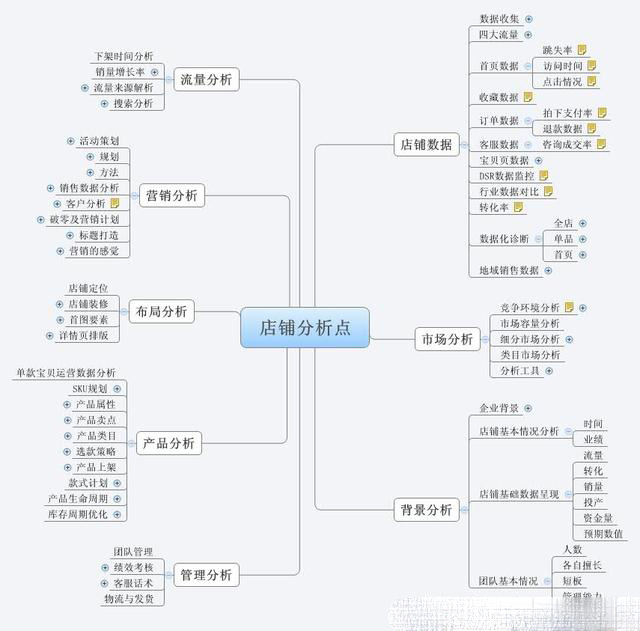
1-1
Take a chestnut:
You are about to take over a Tmall store of a company. Let’s first think about it: What is the overall situation of the store at present? Through data, we can understand the store's early operating conditions: industry competition, market conditions, market capacity trends, category market analysis, and the presentation of basic enterprise data. Store search traffic analysis, store marketing analysis, overall store layout analysis, product attribute style pricing analysis, team management analysis, etc.
And I did this: first return to process thinking, and it is clear at a glance, as shown in Figure 1-1
Then, based on the overall overall situation of the store analysis point, find each operation and every link, determine which details are important or not, and finally analyze the store weight, as shown in Figure 1-2
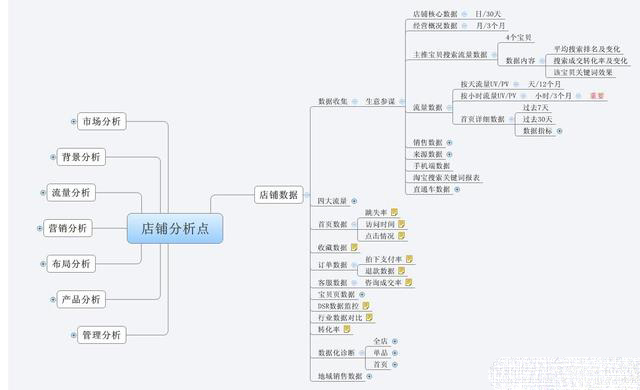
1-2
That is, e-commerce operations "first have a global process thinking, then come up with solutions". When you get a store, you generally follow the following three steps to think:
① Define work and determine logic (what I want to do)
② Mind map, sort out details (organize the store problems)
③ Determine strategies and decompose tasks (execute and solve problems)
3. Refined thinking
After process thinking, there will inevitably be refined thinking and refined management, that is, breaking the problem into countless small executable details and being able to control and manage all details.
Look directly at the chestnuts shown in Figure 1-3 and continue with the above chestnuts:
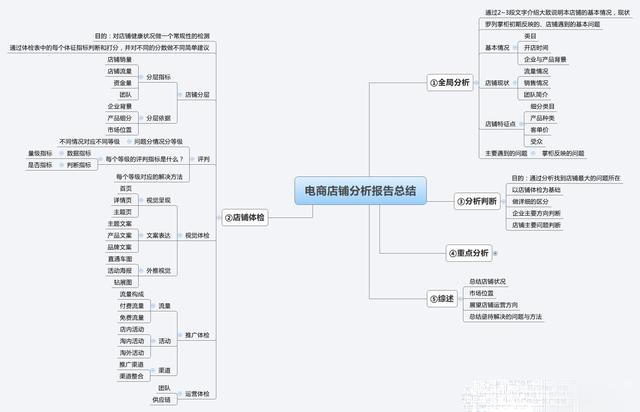
1-3
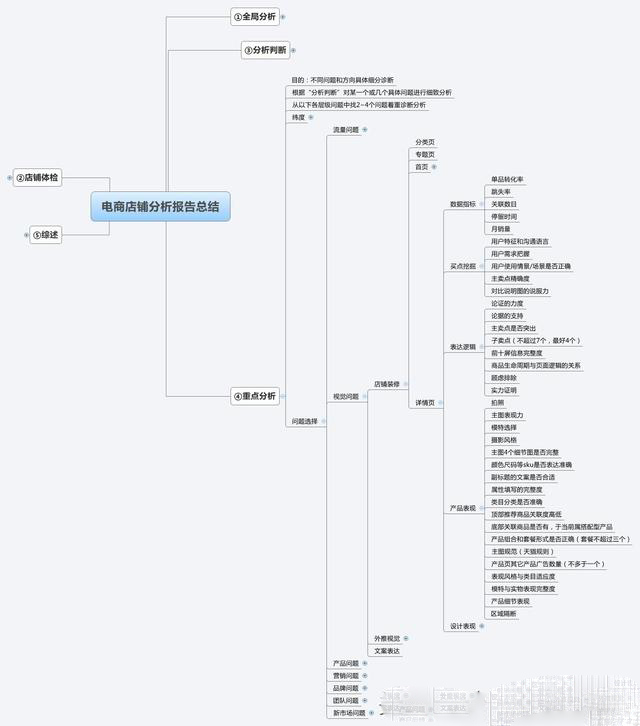
The "Summary of E-Shop Analysis Report" in the figure above is a refined mind map based on the e-Shop Analysis Point. In fact, each branch can be further subdivided until it is executable and quantified.
If you want to do a good job, you must first sharpen your tools.
In e-commerce operations, you should first have some good thinking and working habits. This is a sufficient and necessary condition for operation. The practical skills and methods after that are established on this.
Finally, look at the store’s problems with dialectical thinking and critical perspective.







![#Laogao E-commerce Newsletter# [May 28 E-commerce Evening News Brief]](/update/1519722543l029041880.jpg)
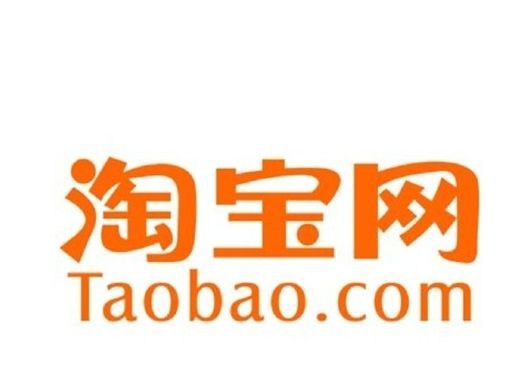

 EN
EN CN
CN
